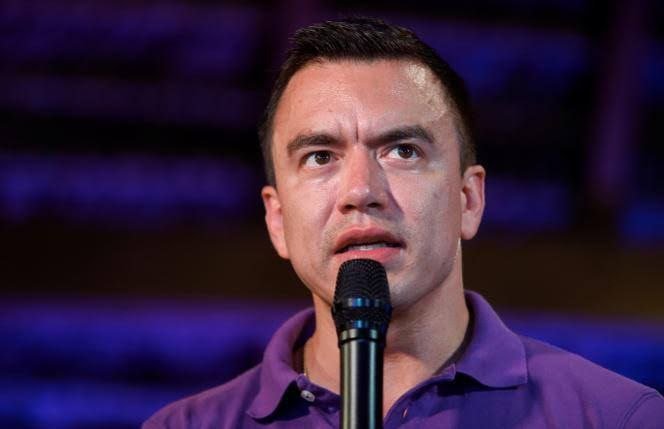Daniel Noboa Re-elected Amid “Grotesque” Fraud Allegations, Rising Violence, and Foreign Policy Realignment
Executive Summary
Daniel Noboa has secured a full four-year term as President of Ecuador following a decisive electoral win, earning nearly 56% of the vote against left-wing challenger Luisa González. While international observers deemed the election free and fair, González refused to concede, denouncing the outcome as the “most grotesque fraud” in Ecuador’s history. The re-election comes as the country faces spiraling cartel violence, economic instability, and rising political polarization. Noboa’s controversial security measures and alignment with the Trump administration signal a shift in both domestic governance and international alliances.
Analysis
President Daniel Noboa’s victory in the 2025 runoff election surprised many observers, given polls indicating a tight race in the final weeks. He defeated Luisa González by over one million votes, securing a broad mandate to extend his militarized crackdown on organized crime. The 37-year-old heir to a banana empire has declared an “internal armed conflict” against drug gangs and has used emergency powers to deploy the military in public spaces and prisons. Despite human rights concerns, his hardline stance resonated with a population weary of violence — Ecuador’s homicide rate remains among the highest in the region.
González, however, has refused to accept the results. Alleging electoral fraud without evidence, she accused the National Electoral Council of facilitating dictatorship. Her campaign, closely linked to former President Rafael Correa, has further divided an electorate already traumatized by political assassinations, narco-violence, and institutional decay. The widow of slain 2023 candidate Fernando Villavicencio also released a video days before the vote, accusing Noboa and Attorney General Diana Salazar of covering up the real circumstances of her husband’s murder. The timing and content of the video have added to post-election tensions.
Beyond Ecuador’s borders, Noboa’s re-election has geopolitical implications. He has strengthened ties with U.S. President Donald Trump, including a highly publicized visit to Mar-a-Lago. His government has sought U.S. military assistance and reportedly entertained a partnership with Blackwater founder Erik Prince to support domestic security efforts. Noboa has also indicated plans to allow U.S. military forces back into Ecuador, reversing a ban instituted under Correa.
Domestically, Noboa faces significant hurdles. The economy is in recession, power outages have plagued the country due to drought, and the National Assembly remains fragmented. His party controls only 66 out of 151 seats, one less than González’s Citizen Revolution. Any major reforms will require coalition-building skills Noboa has yet to demonstrate. Moreover, recent revelations linking his family’s banana business to international drug trafficking investigations—though not implicating Noboa directly—raise uncomfortable questions as he doubles down on anti-narco rhetoric.
Despite these challenges, Noboa’s international profile has gained a boost. Markets responded favorably to his win, and Washington views him as a stabilizing partner in a volatile region. U.S.-Ecuador cooperation is expected to deepen across counter-narcotics, trade, and infrastructure development. Still, the success of Noboa’s second term depends on his ability to navigate an increasingly polarized domestic landscape while proving his security strategies can deliver lasting results without eroding democratic norms.
